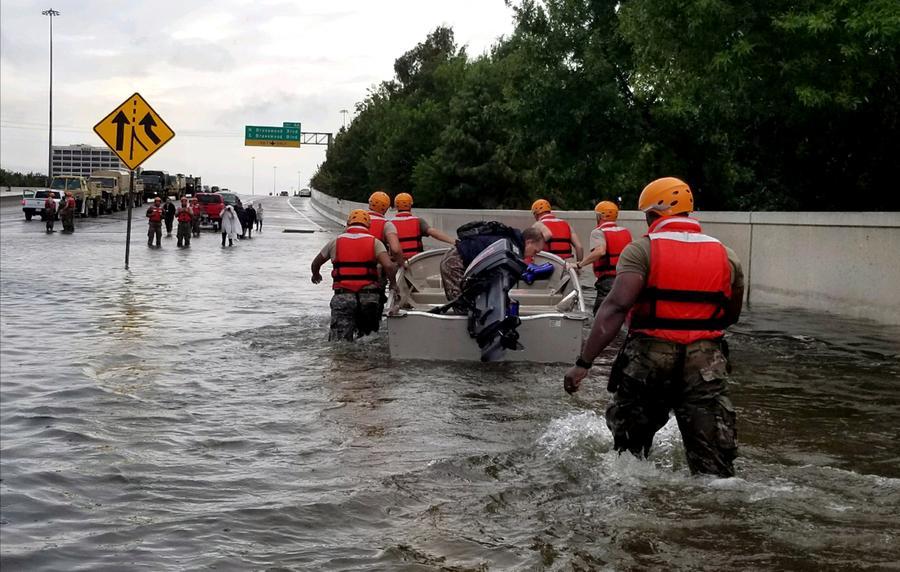_Madi Baughman is a freshman journalism and political science major at MU. She is an opinions columnist who writes about political and civil rights issues for The Maneater._
Harvey. Irma. Jose. Maria. These are four names people in the Caribbean and along the coasts of the U.S. will not soon forget.
For decades, Americans have ignored the warnings of scientists that are only becoming more and more obvious: Climate change is very real, and its consequences have the power to affect us all. This summer has already been recorded as part of one of the hottest years on record, but this doesn’t come as a surprise to meteorologists. In fact, 2017 is set to be the fourth consecutive hottest year on record. And if we’ve all noticed how hot it’s been for the past few years (among other noticeable side effects of climate change), why are we still so reluctant to acknowledge that humans have been changing our climate in harmful ways?
It’s simple: “big business” — the term given to the top CEOs of billion-dollar companies (the people that make up the top 1 percent) — isn’t too fond of environmental regulations that would take profit away from them. In the past few decades, the wage gap between the top 1 percent and everyone else has grown at an alarming rate. Whether we like to admit it or not, big business has a lot of power over the government, therefore impacting politicians and legislation. Oftentimes, unfortunately, this shows up in political agendas, where it then has the power to impact people’s opinions without them researching the topic. This has been going on for years, and yet we still fail to acknowledge the problem American society has with this.
So why pay attention now, of all times?
We should care because it determines the future of millions of people. There are islands in the Caribbean that are 90 percent destroyed because of the recent storms. Dozens of fires have scorched the West Coast recently. Even here in the Midwest, we feel the effects of the recent weather from the coasts, from changes in weather to concern for people we know who have been impacted by these disasters.
The storms have caused billions of dollars in damage, displaced thousands of people and destroyed tons of supplies necessary for basic survival in today’s society. Puerto Rico now faces the possibility of going months without power — that’s 3.4 million people, more than the population of many U.S. states, without any power at all.
Even if you don’t agree completely with climate change, you can’t deny the devastating effects these disasters have had on millions of people. After four of the strongest hurricanes in the past few years all occurring in quick succession, you’d think that maybe even the skeptics would take a step back to reconsider their stances. Unless we want this destruction to keep happening every hurricane season, our society needs to take a serious look at the way we view climate change. I encourage you to challenge the ideas of big business and others who deny the scientific evidence and do your own research about the topic. If we don’t start opening our eyes to what’s happening right under our noses, the results could be — very literally — deadly.













